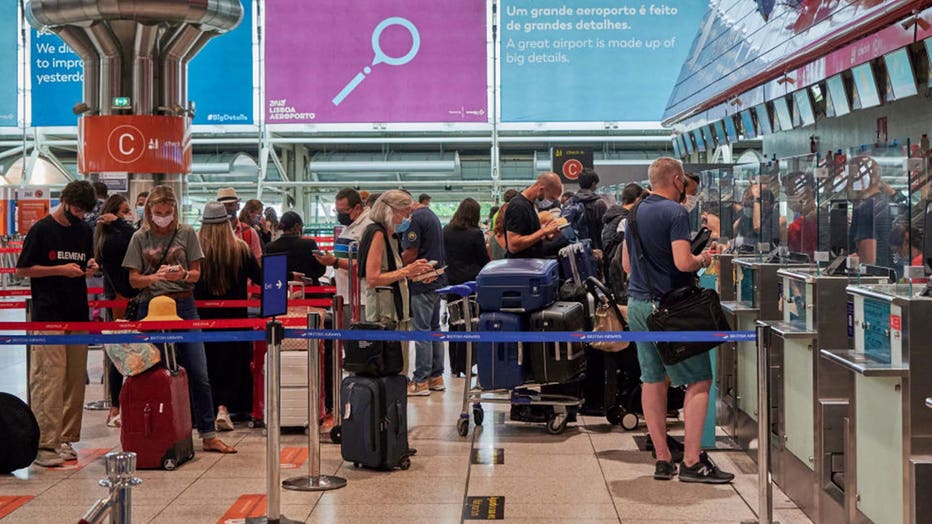EU has fully vaccinated 70% of adults against COVID-19, officials say
The European Union has vaccinated 70% of their adult population against COVID-19, according to a tweet posted by the president of the European Commission, the EU’s executive branch, on Tuesday.
Ursula von der Leyen, president of the European Commission, posted a video thanking people for making the union’s vaccine goal possible.
"Today, we reached an important milestone in our vaccination campaign," von der Leyen said. "Seventy percent of adults in the European Union are now fully vaccinated. And that is more than 250 million people who are immunized."
RELATED: US intelligence agencies remain divided on origins of COVID-19
The EU’s vaccination percentage has now surpassed the United States despite having a sluggish start to its vaccination rollout.
As of Aug. 31, 63.4% of adults 18 and older have been fully vaccinated against COVID-19 in the U.S., with 74.1% receiving at least one dose, according to data collected by the U.S. Centers for Disease Control and Prevention.
Meanwhile, as cases continue to surge in the U.S. and Europe largely due to the COVID-19 delta variant, the EU recommended on Monday that its 27 nations reinstate travel restrictions for U.S. tourists.
The decision by the European Council to remove the U.S. from a safe list of countries for nonessential travel reverses the advice that it gave in June, when the bloc recommended lifting restrictions on all U.S. travelers before the summer tourism season.
RELATED: Many major insurers no longer waiving out of pocket costs for COVID-19 care
The EU’s decision reflects growing anxiety that the rampant spread of the virus in the U.S. could jump to Europe at a time when Americans are allowed to travel to the continent.
The guidance issued Monday is nonbinding, however. American tourists should expect a mishmash of travel rules across the continent since the EU has no unified COVID-19 tourism policy and national EU governments have the authority to decide whether or how they keep their borders open during the pandemic.
"Nonessential travel to the EU from countries or entities not listed (on the safe list) ... is subject to temporary travel restriction," the council said in a statement. "This is without prejudice to the possibility for member states to lift the temporary restriction on nonessential travel to the EU for fully vaccinated travelers."
U.S. travelers would have to be immunized with one of the vaccines approved by the bloc, which includes Pfizer, Moderna, AstraZeneca and Johnson&Johnson.

FILE - Departing travelers wearing mandatory protective masks queue to check in for their flights at airline counters in Lisbon Humberto Delgado International Airport. (Horacio Villalobos#Corbis/Corbis via Getty Images)
Possible restrictions on U.S. travelers could include quarantines, further testing requirements upon arrival or even a total ban on all nonessential travel from the U.S.
Meanwhile, the U.S. has yet to reopen its own borders to EU tourists, despite calls from the bloc to do so. Adalbert Jahnz, the European Commission spokesperson for home affairs, said Monday that the EU’s executive arm remained in discussions with the Biden administration but so far both sides have failed to find a reciprocal approach.
In addition to the epidemiological criteria used to determine the countries for which restrictions should be lifted, the European Council said that "reciprocity should also be taken into account on a case-by-case basis."
The European Council updates the safe travel list every two weeks, based on criteria related to coronavirus infection levels. The threshold for being on the EU safe list is having not more than 75 new COVID-19 cases per 100,000 inhabitants over the last 14 days.
The U.S. is averaging more than 155,000 new coronavirus cases and 1,200 deaths per day, and several U.S. states have more COVID-19 patients in the hospital now than at any other time during the pandemic.
The Associated Press contributed to this report.

